A glen is a straight narrow valley with a river, or sometimes a long lake, running through it. One of the appeals of walking in Scotland is that there are so many of these geological features here and so many are nearly empty of human beings.
I just spent two days in one, Glen Strae.
I began in Dalmally with a fancy cup of coffee and as piece of cake served by a man named Paul.
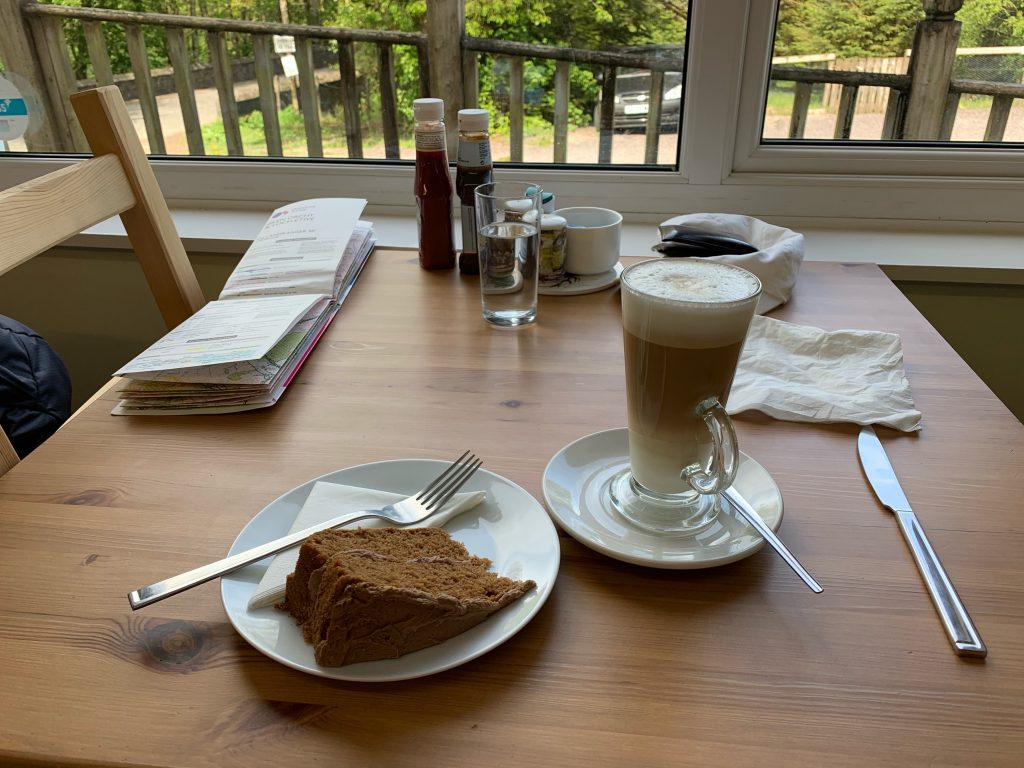
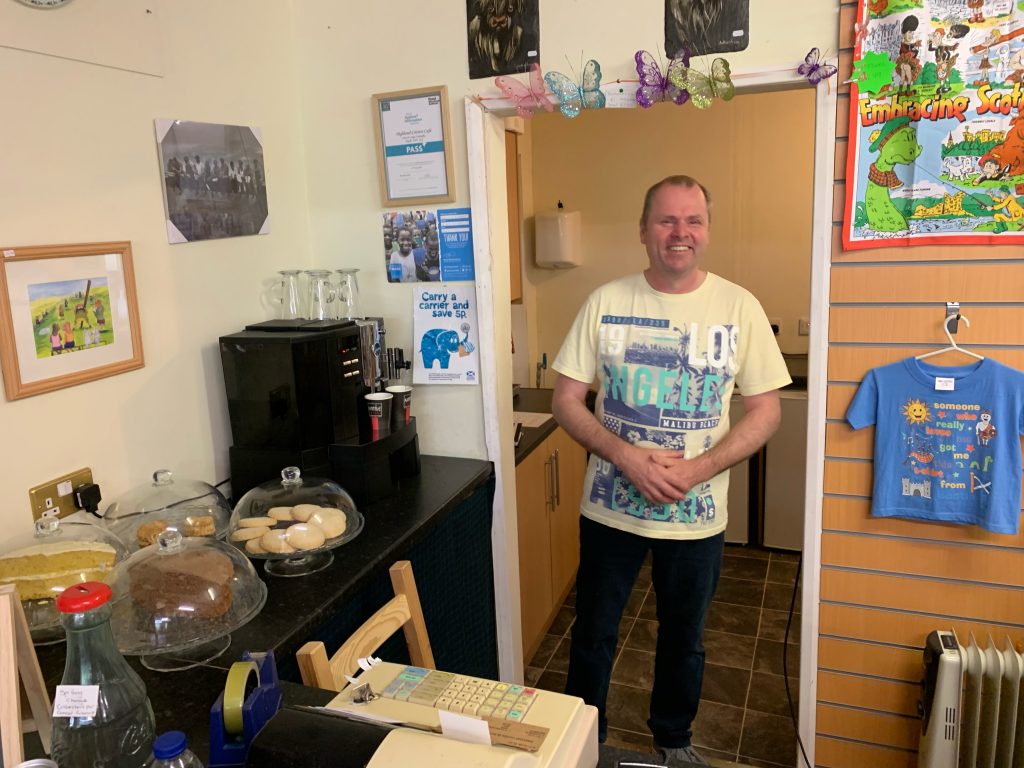
To enter the glen, I had to walk around the western end of one of the two parallel ridges that formed its walls. At the the foot of the glen, in a sheep meadow, was a 40-foot tall stone monument to a man who had once been a leading light in Edinburgh. Perhaps he’s still remembered here. I suspect, however, that this memorial, like so many others like it, is now mostly a tribute to a time of large egos and low wages in rural Scotland.
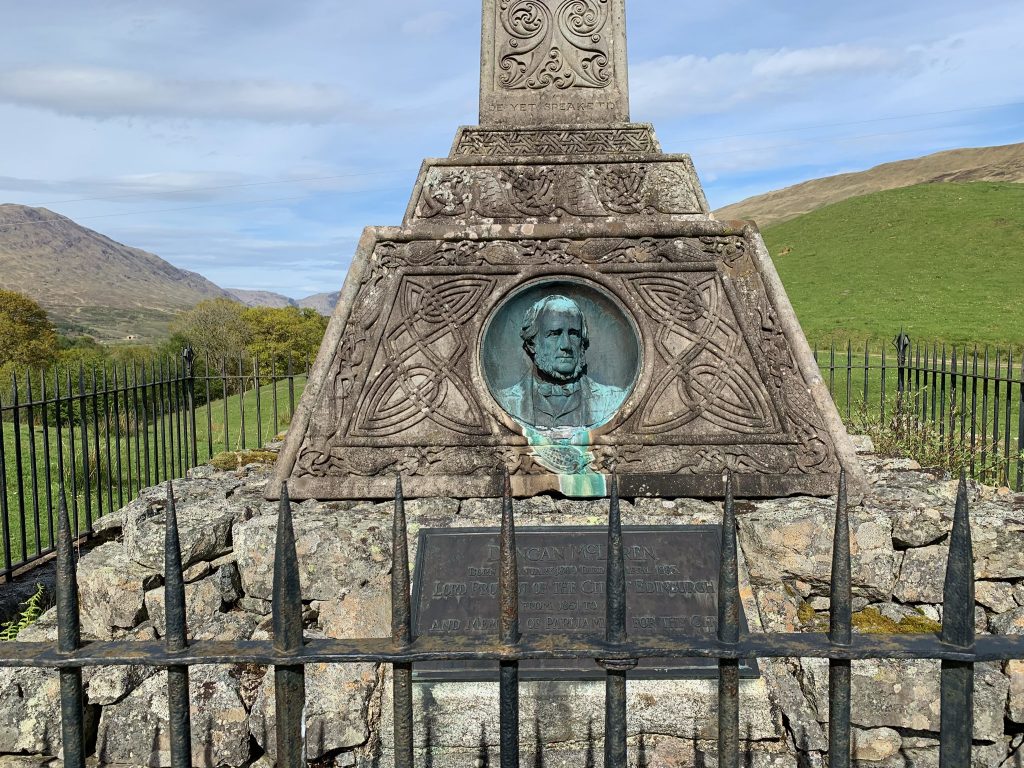
I’d passed a huge monument on a hill earlier in the day, for a poet, Duncan Ban MacIntyre (1724-1812), which seemed to epitomize this phenomenon. It didn’t contain a verse of his work, and you couldn’t get up into it to take in the view its builders coveted.
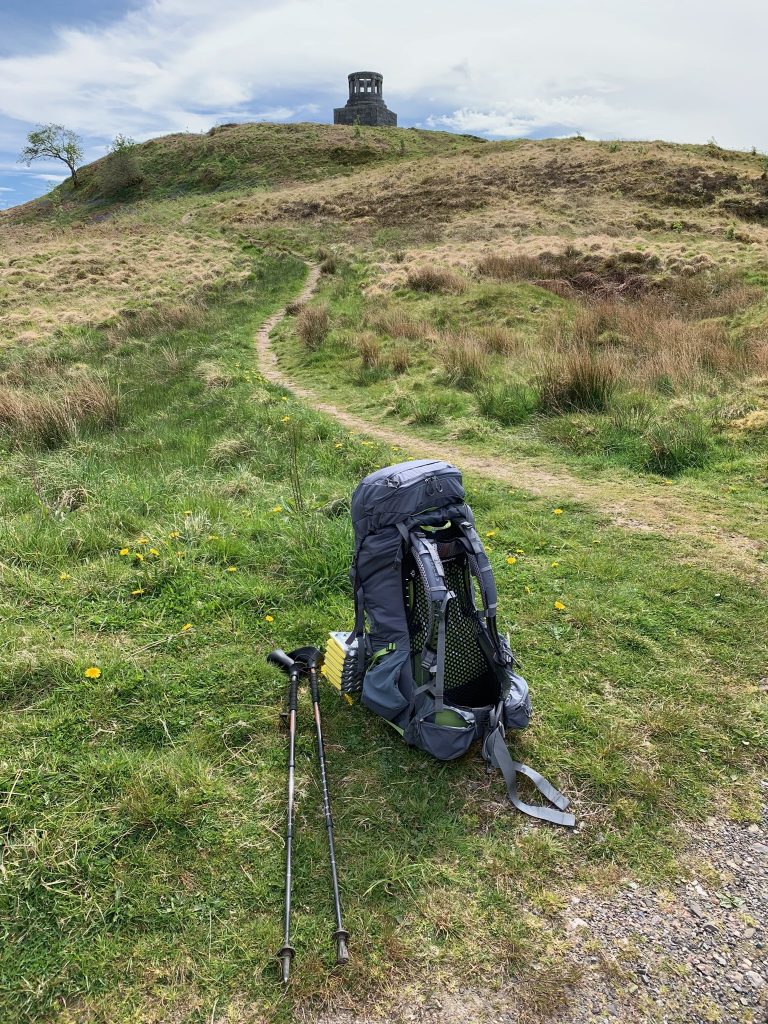
A couple of days later I passed a more modern and modest, not to mention informative, monument. It was for Robert Campbell (1808-1894), born near the site (Dalchiorlich).
A lichen-stained photolithography plaque next to the road said he “earned his place in history by opening the way to the riches of the Klondike” and bringing “Canadian authority to the Yukon” during 40 years with the Hudson’s Bay Company. His monument didn’t have a single notation on it.
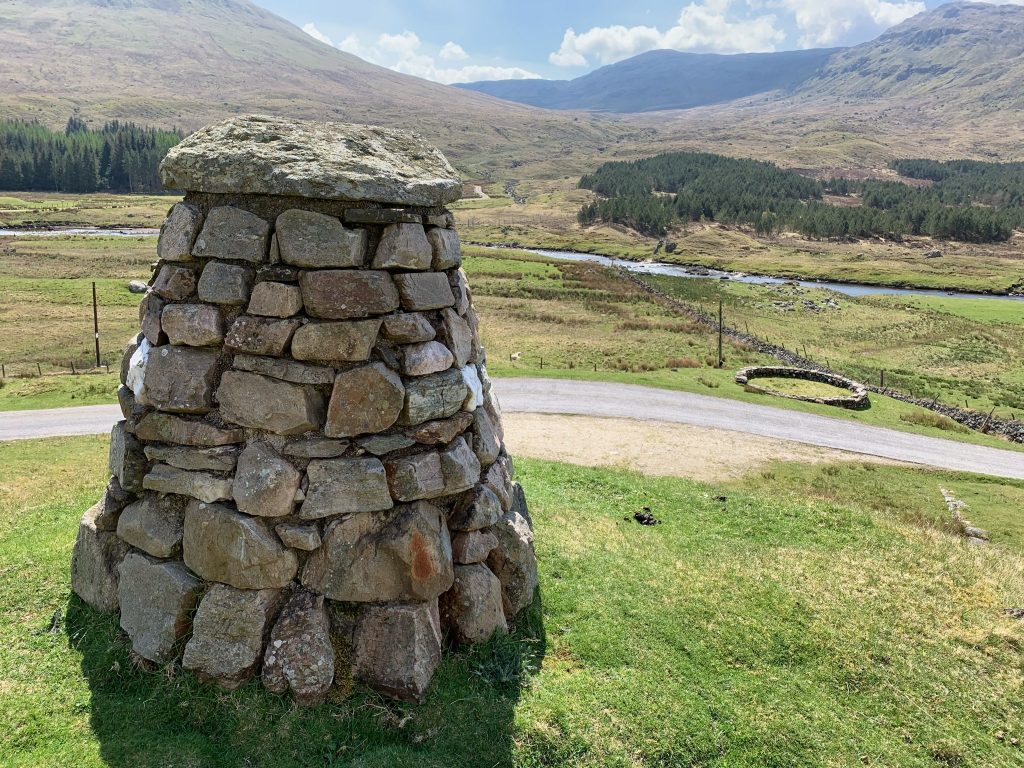
As I entered Glen Strae I saw two all-terrain vehicles climbing a hill track. The drivers were the last people I would see for two days.
There were plenty of animals, of course. This is family season (alas, single-parent) in the hills.
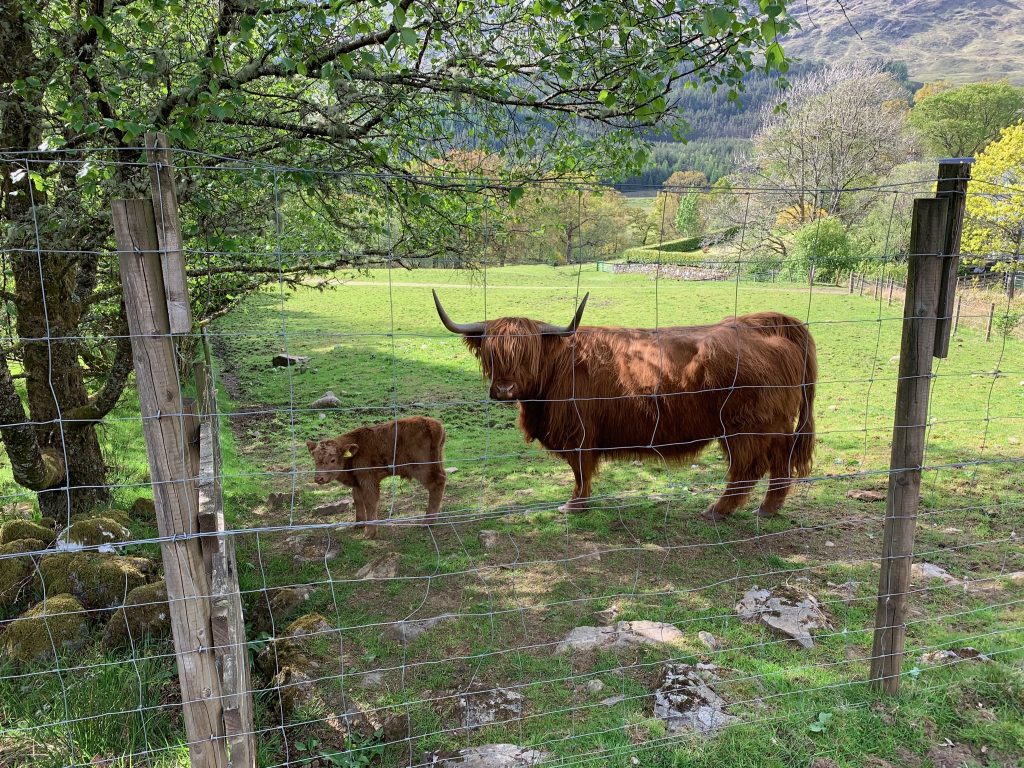
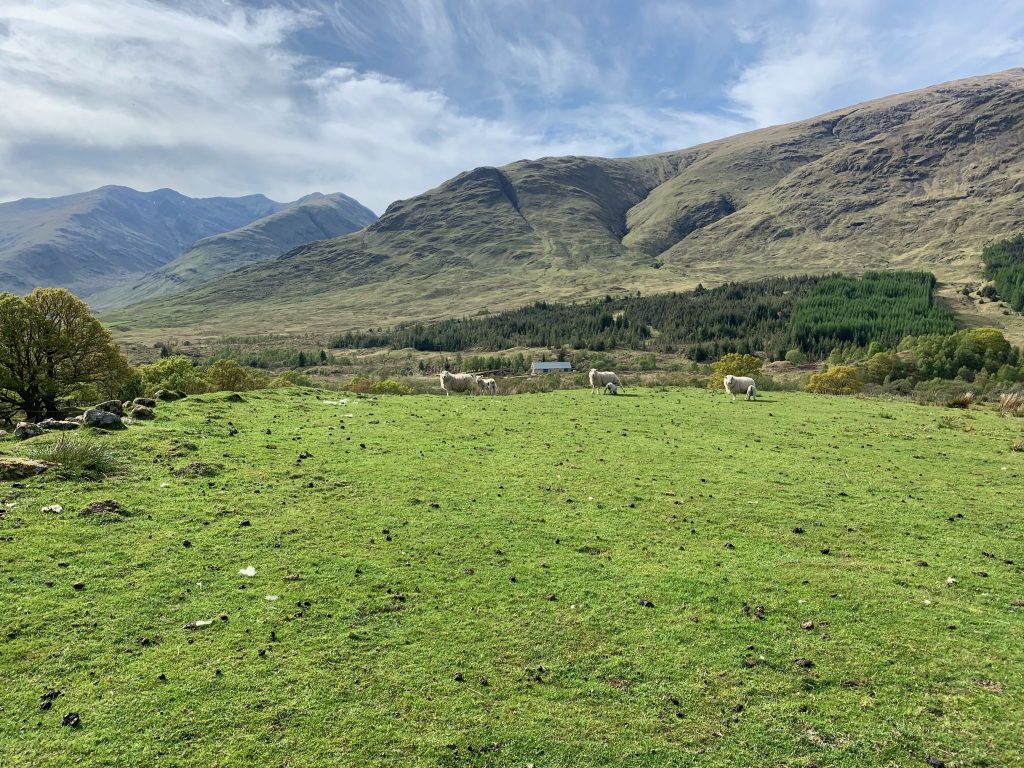
It was a steady uphill walk; a glen, after all, is what a river flows down. Tributaries to the River Strae flowed from the bare hills, forming pools of icy green water.
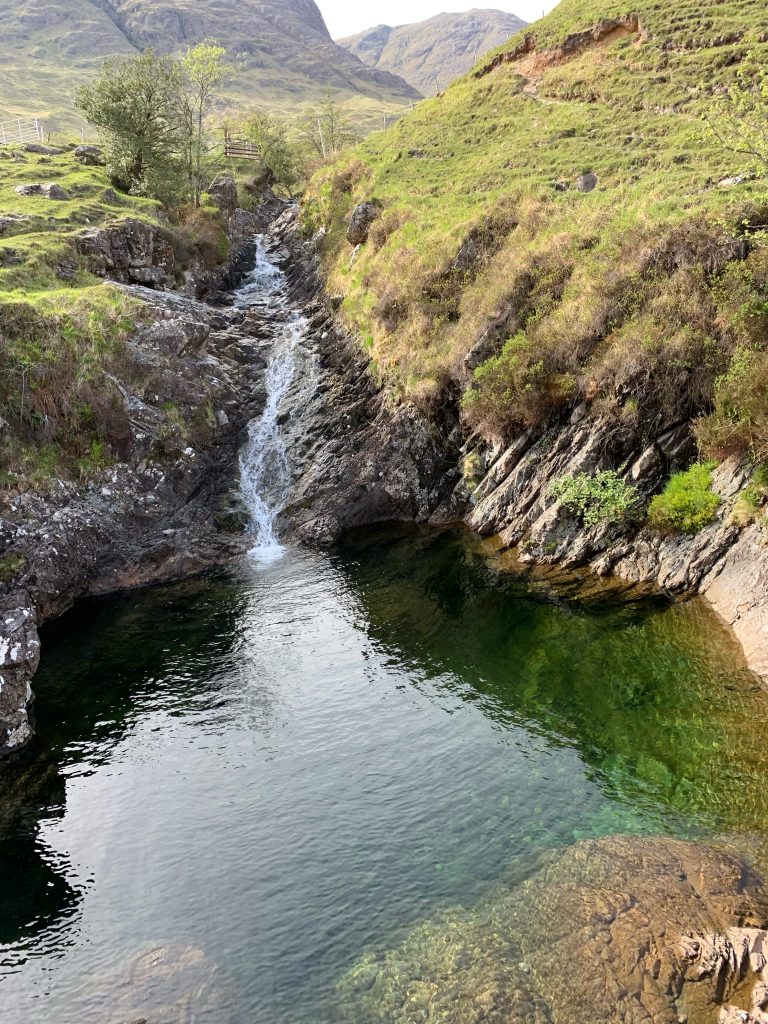
It was a sunny day, as all of the days of this crossing have been. It was also long—long in distance, long in daylight, and long in time alone. The last, in my case, leads eventually to rumination, the replaying of mistakes and bad behavior, the self-pity of disappointments and injustices, the tachycardic thrill of unwreaked vengeance.
There are many therapies for this. Mine is cheap—podcasts.
I had not brought podcasts on previous Challenges. (I’m barely capable of downloading them). But my sister, Ellen, suggested this would be a good opportunity to catch up with the rest of the digital world. So I took some suggestions from her and my son, Will.
Soon, I was listening to the Ezra Klein Show. This may not be in the spirit of the Challenge. But you know what? I have plenty of time with the landscape.
I eventually got to the show in which the host talked with David Brooks, the New York Times columnist and PBS commentator, who has a new book entitled “The Second Mountain.” In it he talks about the four commitments of adulthood that he came to understand after he’d been “broken open” by divorce and a failure of confidence in what he’d thought were worthy goals. (I believe the book’s title obliquely references “The Seven-Storey Mountain” by Thomas Merton, although neither of them said that.)
The episode was called “The Disillusionment of David Brooks,” but should more properly have been called “The Enlightenment of David Brooks.”
It was a revealing interview, in part because Ezra Klein didn’t just ask questions. He talked a fair amount about himself and what was on his mind—and he’s a thoughtful person. On their minds were: democracy, meritocracy, community, capitalism, the new “socialism,” friendship, altruism, unselfconscious self-abnegation, work and over-work, the ridiculousness of religion, the appeal of religion, and a lot more.
It went on for one hour, 41 minutes (including advertisements). That was long enough for me to get to a place where I decided to camp. It wasn’t my intended destination, but it was close to it (and I Iearned the next day, better). A single battered tree had survived beside the stream. Next to it was room for a tent.
I listened to the podcast as I put up the tent, took out all the stuff I would need (which is to say, almost everything in the pack), and fired up the stove to boil water.
Brooks’s and Klein’s message—and they wouldn’t say it was a message, I’m sure—was about modesty, uncertainty, provisionalism, confidence, hopefulness, and honesty.
I sat in the tent vestibule and looked down the glen I was only half-way up, sipping whisky and waiting for dinner. The sub-arctic sundown—so long that it seems to be one long offer of extra time or a second chance—slowly raised a curtain of shadow on the brown hill to my left.
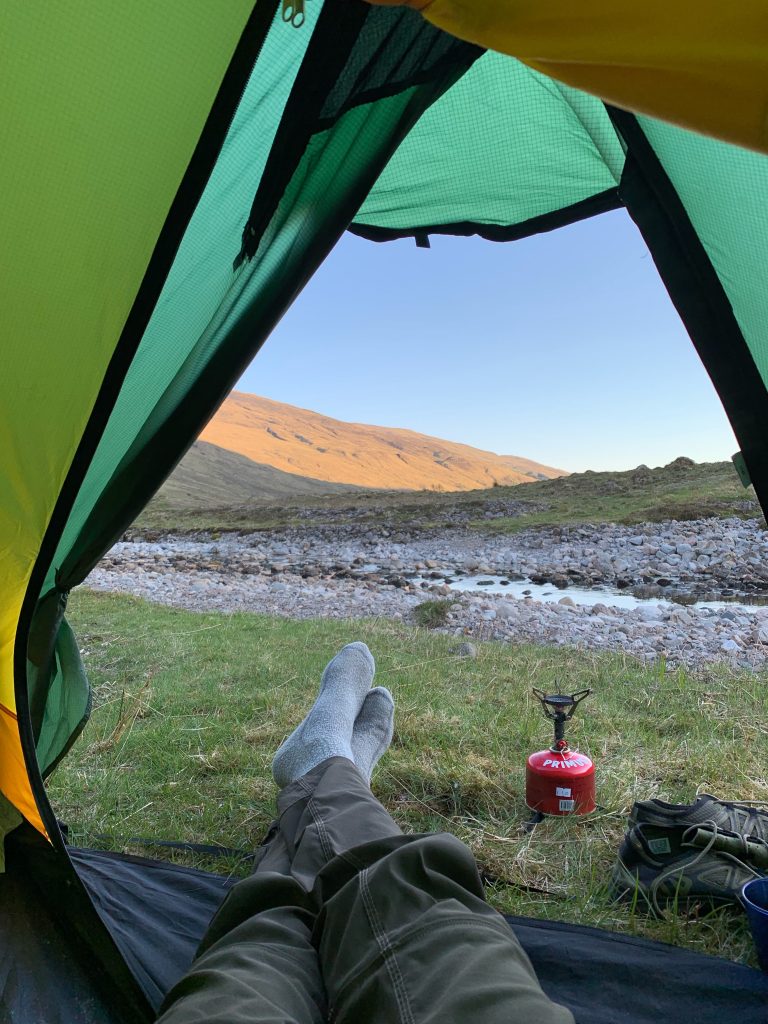
A feeling of the benign nature of things settled on me.
Perhaps you had to be there. I’m glad I was.
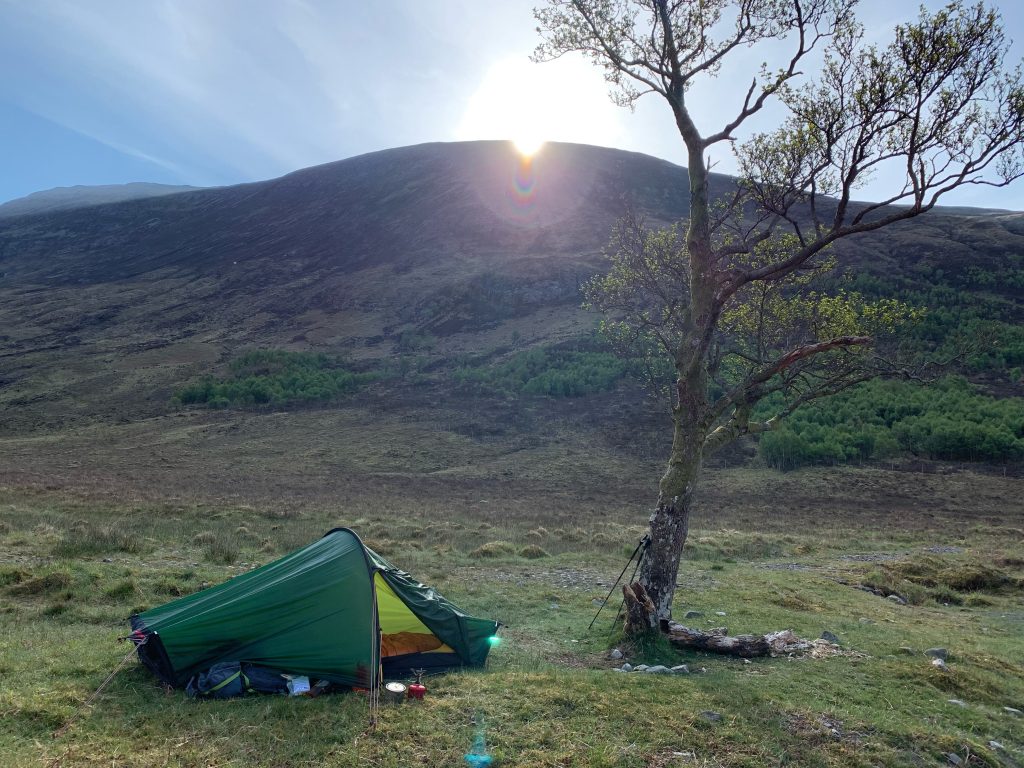
And thanks for bringing us along. A beautiful trip!
Consider yourself on a silent retreat (except for the podcasts). I’ll have to check out that David Brooks one. Thanks for your posts. xo
If and when you have the opportunity to download more podcasts, I recommend a new, short series by Michael Lewis, “Against the Rules” — ruminative and smart in Brownian style.